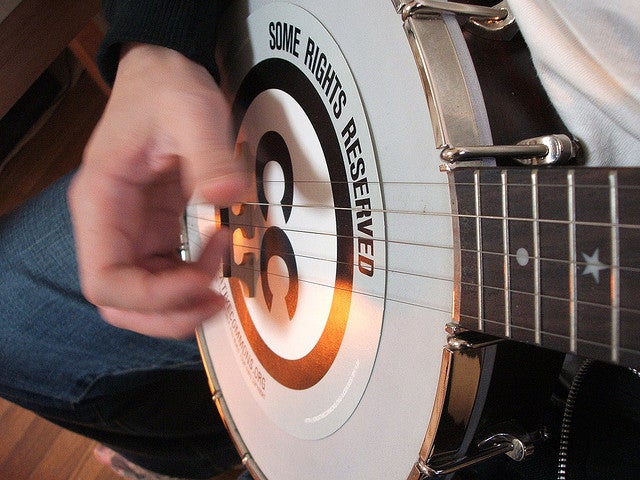
andreas/flickr
A Creative Commons license makes it easier to make your photos as shareable as possible for the age of social media, but should your intellectual property be given away for free?
If you’re a photographer, the images you capture are what puts food on your table. Smartphones and cheap digital cameras are making photos easier than ever to take and share.
As the quantity of pictures available rises while quality falls, the last thing many professional photographers would want to do is to make their work publicly available without seeing any profit.
And yet, some professionals are still finding use for the Creative Commons license. All artistic work is automatically protected by copyright, but some choose to waive it in order to make their work more visible on the web, hoping that a popular image will boost their portfolio. So how does Creative Commons work, and is it really viable for artists trying to make a living?
In essence, a Creative Commons license allows you to maintain your copyright while also allowing for other uses of your work, granting you and your audience more flexibility than the “all rights reserved” copyright.
Photos under Creative Commons can be freely shared and re-used in other people’s work — particularly in web content like news articles or blog posts. Rather than an legal framework for intellectual property, Creative Commons is actually a non-profit that uses donations to provide users with what the company calls “free legal tools” to access and share royalty-free content.
A Creative Commons license can be customized to allow or prohibit others to modify your work or use it for commercial purposes. You can also determine whether or not anyone sharing your image has to credit you in their own content.
While a normal copyright still makes your work available to others if they ask for permission, Creative Commons licenses streamlines that process for the constant sharing that often occurs on the web. In short, it’s ideal for gaining exposure.
As more and more artists opt in, the Commons is building a substantial community of prominent professionals who are comfortable sharing their work. Especially for photographers who aren’t living paycheck-to-paycheck, the option gives them more visibility to particular audiences they might otherwise not have access to.
For example, British photographer Jonathan Worth, whose work hangs in the London National Portrait Gallery, uses the Creative Commons to take advantage of digital natives’ social media habits. Rather than chasing up copyright infringements, Worth attests that Creative Commons “lets me choose my flavor and helps me take advantage of the things working against me.”
It’s true that this kind of publicly available content is extremely popular with young people, who often value publicity over making money at this stage in their lives.
You’ve probably noticed that sharing photos on Flickr, videos on Vimeo, and music on Soundcloud is extremely easy and popular. Even Google Images has recently introduced a specific filter just for Creative Commons-licensed material, according to Creative Commons.
But of course, doing whatever is most fashionable isn’t going to pay the bills. Besides, no matter what you apply to your Creative Commons license to protect your intellectual property, the license still isn’t protected by law. Because the Commons is a company and not a law, these licenses don’t actually have any legal significance beyond the license itself.
And that makes it particularly tricky when someone takes an image that doesn’t belong to them, uploads it to Flickr or Google, and applies their own Creative Commons license to it.
The legal territory become incredibly murky at this point (the licences are notoriously complicated), and if you don’t have a good lawyer, you could have plenty of trouble getting the credit you deserve.
How you choose to license your photos depends not only on your goals as a professional, but on your economic situation as well. But regardless of whether you want to make your work shareable on the internet, all photographers need their work in the most pristine possible condition off the web.
For that, there’s no one better than Printique. Each of the photos we process and print is inspected for quality control, and when you look at the final version of our work, you’ll see that this personal effort shows. A Creative Commons license might make your work more visible, but for real artists, visibility is not enough — prints from Printique will do your work justice.